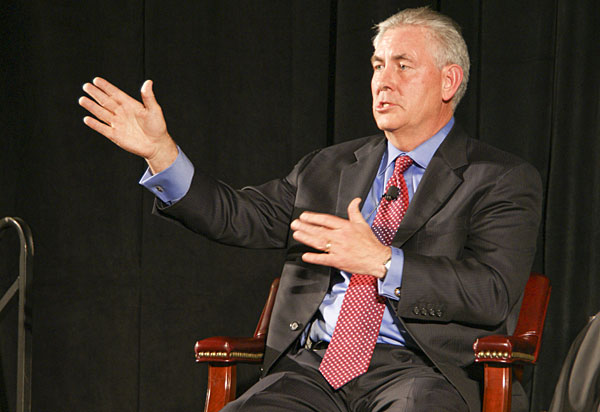 William Munoz/Flickr
William Munoz/Flickr
Secretary Tillerson Should Champion Climate Action at G20 Foreign Ministers Meeting
On February 16 and 17, G20 foreign ministers will meet in Bonn, Germany. This is a precursor to the official G20 summit scheduled for Hamburg on July 7 and 8. As Secretary of State Rex Tillerson’s first official trip, this will be a closely watched moment for where the new American administration will stand on a range of issues. One issue on which there is great uncertainty and international concern is climate change. Germany, as the president of the G20, is charged with forging consensus. Secretary Tillerson should come prepared to explore responses to the global security threat of climate change.
The G20 was set up as an international forum for discussion on global problems that transcend the capabilities of any one country or organization to handle alone. A changing climate acts as an accelerant of instability around the world, exacerbating tensions related to water scarcity, food shortages, natural resource competition, underdevelopment and overpopulation. Climate change does not respect political borders, as British Prime Minister Theresa May said in her speech to congressional Republicans. Just because a nation has secured its territorial integrity does not mean it has ensured the security of its citizens, as the American Security Project (ASP) has shown in the report, American Security: The Impacts of Climate Change.
The Paris Agreement of 2015 was a big step forward in terms of global action on climate change. Germany’s priorities for the G20 intend to build on the Paris Accord by encouraging ambitious implementation. Furthermore, Germany intends to link climate and energy policy more closely. They have designated the discussion of economically efficient, greenhouse gas–neutral energy as one of the main priorities of the G20. These discussions aim to foster political frameworks, financing instruments, and economic incentives for investments in climate-resilient infrastructure and to boost technological innovations.
These stances could set the stage for a confrontation with the new U.S. administration. During Sec. Tillerson’s confirmation hearing, he acknowledged that climate change does “require a global response,” while in regards to the Paris Agreement he gave a tepid endorsement, saying the U.S. should “maintain its seat at the table.” A more robust push from the U.S. would be instrumental to more effectively address climate change. As one of the few countries capable of significant global humanitarian action the U.S. military could potentially be exhausted in the future by natural disasters caused by climate change. Secretary Tillerson, and the Trump Administration at large, need to understand this, and keep it in mind during international meetings like the G20, as well as the Munich Security Conference which Vice President Pence is expected to attend.
One of the problems with climate change action is that it is often far too politicized. Climate change, at its core, is an existential threat to global security and it has the ability to send already unstable situations over the edge. If Secretary Tillerson understands and takes this position, then the G20 meeting of foreign ministers has the potential to be much more productive than it would be otherwise. It would also be a very good omen for what is to come in the official G20 summit to be held in July.





